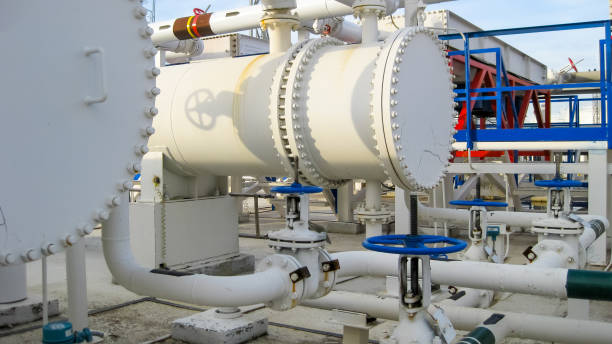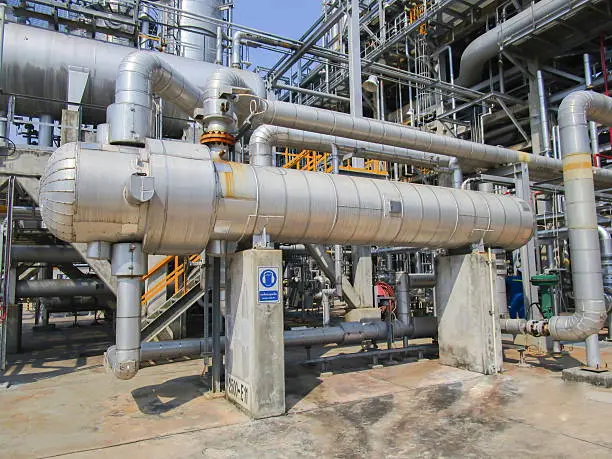In modern industries, energy efficiency and thermal management are two essential characteristics needed for smooth running operations. The SSCF heat exchanger is one among the best heat exchangers that offer reliable heat transfer performance and system reliability. This design provides it with flexibility to perform across several industrial applications and ensures energy is obtained and processes are stable. With innovations introduced by an industrial product manufacturer, these exchangers continue to evolve, offering benefits for sustainability and cost optimization.

Increased Energy Efficiency
Best Heat Transfer Performance
The main function of heat exchangers is heat transfer between two fluids without mixing. Doing that with high efficiency minimizes energy wastage and maximizes the output. Thus what you see is energy efficiency reflecting in lower operational costs.
Minimal Fuel Usage
If the efficient transfer of energy is taking place, the industries will be in need of lesser fuel for maintaining temperature. This, of course, means savings of money and a lighter carbon footprint.
Higher Process Reliability
Uniform Temperature Control
Many industrial systems operate with strict temperatures. The heat exchangers assist that fluids are maintained within these limits and thereby reduce risks of over-heating or cooling failures.
Greater System Stability
Exchangers enhance stability of the process by balancing thermal loads. In doing that, industrial operations run without stopping for unpredictable reasons.
Savings On Operation Costs
Less Energy Bills
Efficient heat transfer reduces the need for additional heating or cooling systems such that the energy bills show pronounced reductions.
Extended Equipment Life
Letting heat exchangers help lessen thermal stress on equipment, they greatly reduce wear and tear, hence reducing maintenance costs and enhancing the longevity of equipment.
Industrial Versatility
Wide Range Of Applications
From chemical plants and oil refineries, food processing, to power generation, exchangers adapt to a wide variety of uses. Their flexibility makes them an indispensable tool in multiple industries.
Made to Order
Exchangers may be manufactured according to specificationsc in response to specific application needs. Such flexibility guarantees maximum compatibility with the specialized process.
Environmental Benefits
Lower Carbon Emissions
At improved energy efficiency, less fuel is needed, which means reduced greenhouse emissions. Thus, exchangers play their role in creating a sustainable industrial future.
Conservation of Water and Resources
For systems that employ air-cooled exchangers, reliance on water is reduced, thus helping industries conserve natural resources while providing effective cooling.
Safety Improvements
Eliminate Risks of Overheating
Heat exchangers have a protective function, controlling temperature fluctuations, thereby diminishing chances of system overheating through its influence on sensitive systems.
Eliminate Equipment Failure
They safeguard against conditions that could damage equipment, triggering expensive breakdowns and hazard threats by maintaining favorable operating conditions.
Scalability and Flexibility
Adaptability Towards Growth
As industries expand, heat exchangers can be either scaled up or upgraded to accommodate new demands. This scalability thus keeps them in tune with the changes in operations.
Suitable for Both Large and Small Systems
Whether in a massive refinery or small processing unit, exchangers can be seamlessly integrated without compromising efficiency.
Support for High-Pressure and High-Temperature Environments
Robust Design
Designed for extreme pressure and temperature swings, heat exchangers are ideal for heavy-duty applications.
Reliable Performance Under Stressful Conditions
Exchangers deliver consistent performance regardless of environmental demands, ensuring that processes run smoothly without energy loss.
Easy Maintenance and Clean
The easy access design features of several exchangers favor maintenance. They are easy to clean, inspect, and replace gaskets.
Reduced Downtime
Exchangers can be serviced with minimal downtime, thus keeping operational flow and productivity intact.
Long-Term Investment Prospects
Return On Investments
The initial purchase price might appear considerable, however, heat exchangers lead to longer savings in dimension on account of efficiency, reliability, and durability.
Contribution to Industrial Growth
By providing a stable thermal management system, they support operational excellence, which in turn drives industrial growth and competitiveness.
Common FAQ
Which industries benefit most from a heat exchanger?
Heat exchangers find their application in chemical processing, oil and gas, power generation, food production, and HVAC applications.
Why is Energy Efficiency a Major Benefit of Heat Exchangers?
Energy efficiency leads to reduced operational expenditure and environmental impact as energy is consumed at minimum during the heat transfer operation.
How often should heat exchangers be maintained?
Maintenance frequency depends per case on the operating conditions, but generally, inspections and cleaning should be carried out regularly to prevent fouling and thereby enable reliability.
Can corrosive fluids be handled by heat exchangers?
Yes, with the right materials used for design purposes, exchangers can handle corrosive or chemically aggressive fluids safely without sustaining any damage.
Are heat exchangers applicable for use in small-scale industries?
Assuredly. Heat exchangers have the capability to be versatile and those available in designs are such that they accommodate operation for both larger-scale plants and smaller industrial ones.




